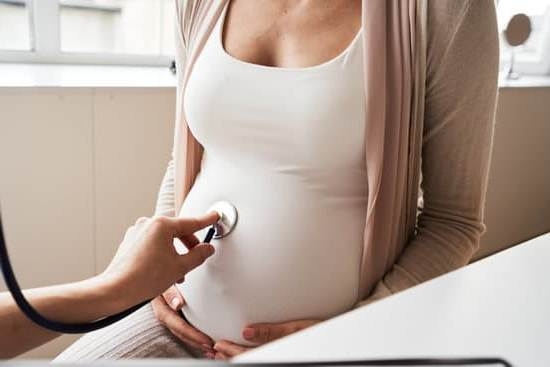When it comes to discussions about sexual health and contraception, the topic of precum pregnancy often sparks curiosity and concern. Many people wonder about the likelihood of becoming pregnant from precum, also known as pre-ejaculate fluid, and the presence of sperm in it.
This article delves into the science behind precum and its relationship to pregnancy, debunking common myths, discussing factors affecting the risk of precum pregnancy, sharing real-life experiences, exploring methods of prevention, and emphasizing the importance of open communication with sexual partners.
Understanding what precum is and how it can lead to pregnancy is crucial for individuals who are sexually active or considering engaging in sexual activities. It is important to address concerns related to precum pregnancy, as well as misconceptions and myths surrounding this topic. Factors such as timing, fertility, and contraception use can influence the risk of pregnancy from precum. Real-life experiences from individuals who have faced the possibility of precum pregnancy can provide valuable insights into this issue.
Effective methods of preventing pregnancy from precum will be explored in this article, including contraception options and safe sex practices. Additionally, readers will gain an understanding of the importance of open communication with sexual partners about the risk of precum pregnancy and the use of contraception. This comprehensive guide aims to provide valuable information on an important aspect of sexual health that often generates confusion and anxiety among individuals.
The Science Behind Precum and Pregnancy
Precum, also known as pre-ejaculate, is a clear fluid that is released from the male urethra during sexual arousal. Contrary to popular belief, precum itself does not contain sperm. However, it is possible for sperm to be present in precum due to residual sperm in the urethra from a previous ejaculation. This means that there is a possibility of pregnancy occurring if precum comes into contact with the vagina.
The likelihood of pregnancy from precum largely depends on several factors. One of the main factors is timing – whether or not the female partner is ovulating at the time of sexual activity.
Sperm can survive inside the female reproductive system for up to 5 days, so if ovulation occurs within this window, there is a possibility of fertilization and pregnancy. Additionally, factors such as fertility of both partners and the use (or lack thereof) of contraception can also influence the risk of precum pregnancy.
According to studies, research has shown that some men may have sperm in their precum even if they have urinated since their last ejaculation. Although the concentration of sperm in precum is generally lower compared to ejaculate, it only takes one sperm cell to fertilize an egg. Therefore, it’s important for individuals engaging in sexual activity to be aware of the potential risk and take precautions such as using condoms or other forms of contraception to prevent unwanted pregnancy.
| Factor | Influence |
|---|---|
| Timing | Determines likelihood of ovulation and potential contact with sperm |
| Fertility | Affects chances of successful fertilization |
| Contraception use | Can reduce risk of pregnancy from precum exposure |
Debunking Common Myths
Myth 1: Precum Does Not Contain Sperm
One common myth about precum and pregnancy is the belief that precum, also known as pre-ejaculate, does not contain sperm. However, research has shown that while the concentration of sperm in precum may be lower than in ejaculate, it can still be present.
A study published in the journal Contraception found that 37% of men had motile sperm in their precum samples. This debunks the misconception that precum is completely free of sperm, highlighting the potential risk of pregnancy from precum.
Myth 2: It’s Safe to Engage in Unprotected Sex if Withdrawal Method Is Used
Another common myth related to precum pregnancy is the belief that using the withdrawal method (pulling out before ejaculation) can effectively prevent pregnancy. However, this method is not foolproof, as precum itself can contain sperm and may be released prior to full ejaculation. Additionally, it requires a high level of self-control and timing accuracy, making it an unreliable form of contraception.
Myth 3: Pregnancy Cannot Occur if You Clean Up After Precum Exposure
Some individuals believe that simply wiping away or cleaning up after potential exposure to precum can prevent pregnancy. However, this is a misconception. Any contact between precum and the vaginal area can pose a risk of pregnancy. Sperm cells are highly motile and can quickly travel towards the uterus and fallopian tubes. Therefore, it’s important to use effective contraception methods or barrier protection to reduce the risk of unintended pregnancy from precum.
By addressing these misconceptions about precum and its role in pregnancy, individuals can make more informed decisions about sexual health and contraception use. It’s crucial to educate oneself on accurate information regarding precum and its potential for causing pregnancy to ensure responsible sexual practices are followed. Open communication with sexual partners about these facts is essential for making informed choices regarding contraception use and preventing unintended pregnancies caused by exposure to precum during sexual activity.
Factors Affecting the Risk of Precum Pregnancy
Precum, also known as pre-ejaculate, is a clear, lubricating fluid that is released from the male urethra during arousal but before ejaculation. One of the most common misconceptions about precum is whether it can lead to pregnancy. The likelihood of pregnancy from precum depends on various factors such as timing, fertility, and contraception use.
Timing plays a crucial role in the risk of pregnancy from precum. While it is commonly believed that precum does not contain sperm, recent studies have shown that it can sometimes carry a small number of sperm if there are residual sperm present in the urethra from a previous ejaculation. If sexual intercourse occurs during this time, there is a potential risk of pregnancy.
Fertility also affects the risk of precum pregnancy. Women who are ovulating are more likely to get pregnant from precum compared to those who are not. Ovulation typically occurs around 14 days before the start of a woman’s next period. Therefore, if sexual activity involving precum happens during this fertile window, the chances of pregnancy are higher.
Furthermore, contraceptive use significantly impacts the risk of precum pregnancy. Proper and consistent use of barrier methods like condoms or other forms of birth control can greatly reduce the risk as they prevent sperm from coming into contact with the vagina. However, relying solely on withdrawal method or not using any form of contraception can increase the chances of pregnancy from precum.
| Factor | Impact on Risk |
|---|---|
| Timing | Potential presence of residual sperm at certain times |
| Fertility | Ovulation increases likelihood of getting pregnant from precum |
| Contraception Use | Proper use reduces risk; improper or no use increases risk |
Real-Life Experiences
Many people have different experiences and stories related to precum pregnancy. These real-life accounts can provide insight into the risks and consequences of unprotected sexual activity involving precum. Here are some personal stories and experiences shared by individuals who have faced the possibility or reality of precum pregnancy:
- A 25-year-old woman shared her story about how she became pregnant after engaging in sexual activity where her partner’s precum may have come into contact with her genital area. Despite not engaging in penetrative sex, she found herself facing an unexpected pregnancy due to the presence of sperm in the precum.
- On the other hand, a 30-year-old man expressed his experience of being involved in a situation where precum was involved, but his partner did not become pregnant. He emphasized the importance of understanding fertility, timing, and the potential risk of pregnancy from precum.
- Another individual recounted their experience of using withdrawal as a method of contraception, assuming that precum did not contain sperm. Unfortunately, this led to an unintended pregnancy, highlighting the misconception around the presence of sperm in precum.
These real-life experiences serve as valuable reminders of the potential risk of precum pregnancy and the need for accurate information on this topic. They also underline the importance of taking proactive measures to prevent unplanned pregnancies from occurring.
Ultimately, these personal stories highlight that every individual’s experience with precum pregnancy can differ based on various factors such as timing, fertility levels, and contraceptive use. It is essential to recognize and address these experiences to promote better understanding and awareness surrounding precum pregnancy.
How to Prevent Precum Pregnancy
Precum, also known as pre-ejaculate, is a clear fluid that may be produced by the male reproductive system during sexual arousal. While it does not contain sperm, it can pick up sperm left in the urethra from previous ejaculations, potentially leading to pregnancy if it comes into contact with the female’s reproductive system. Understanding how to prevent precum pregnancy is crucial for individuals who want to avoid unplanned pregnancies.
Contraception Methods
Using contraception is an effective way to prevent pregnancy from precum. Condoms, for example, are a reliable method of contraception that not only prevent the transmission of sexually transmitted infections but also act as a physical barrier to block precum from coming into contact with the female’s reproductive system. Additionally, individuals can consider using hormonal methods of contraception such as birth control pills, patches, or injections to further reduce the risk of precum pregnancy.
Safe Sex Practices
Practicing safe sex is essential in preventing precum pregnancy. This includes open communication between sexual partners about their sexual health and contraceptive preferences. It also involves being aware of each other’s fertility and planning sexual activity accordingly to reduce the risk of pregnancy. Furthermore, engaging in activities such as mutual masturbation or oral sex instead of vaginal intercourse can lower the risk of precum pregnancy.
Emergency Contraception
In the event that there is a concern about possible exposure to precum without protection, emergency contraception can be considered as a backup method. Emergency contraceptive pills are available over-the-counter and can help prevent pregnancy if taken within a specific timeframe after unprotected intercourse. It is important to note that emergency contraception should not be used as a regular form of birth control.
The Importance of Communication
It is crucial for individuals engaging in sexual activity to understand the potential risks and take necessary precautions to prevent unintended pregnancies. Open communication with sexual partners about the risk of precum pregnancy and the use of contraception is essential in ensuring both parties are on the same page regarding their reproductive health. Below are some important points to consider when discussing this sensitive topic with a partner:
- Discussing contraceptive methods: Have an open and honest conversation with your partner about contraception. Be transparent about your preferred method of birth control, whether it be condoms, birth control pills, or other forms of contraception. It is also important to discuss any concerns or preferences regarding contraception use.
- Understanding each other’s fertility and timing: Understand each other’s fertility cycle and timing to provide additional insight into the risk of precum pregnancy. Knowing when ovulation occurs can help couples make informed decisions about their sexual activity and use of contraception.
- Honesty about potential risks: Be honest about the potential risks associated with precum pregnancy. It is important to acknowledge that while the risk may be lower than with ejaculate, there is still a possibility of sperm being present in precum that could lead to pregnancy.
Open communication about these issues allows both partners to make informed decisions and take necessary steps to reduce the risk of unintended pregnancy resulting from precum. It also promotes a healthy and respectful relationship built on trust and understanding. By fostering an environment for open dialogue about reproductive health, couples can work together to ensure their sexual encounters are safe and mutually consensual.
Conclusion and Key Takeaways
In conclusion, it is crucial for individuals to be well-informed about the potential risk of precum pregnancy. Despite common misconceptions, it is important to understand that precum can indeed contain sperm and lead to pregnancy.
The likelihood of pregnancy from precum may vary depending on factors such as timing, fertility, and the use of contraception. It is essential for individuals to have open and honest communication with their sexual partners about the risk of precum pregnancy and the importance of using contraception to prevent unwanted pregnancies.
It is also important to debunk myths about precum and pregnancy and rely on scientific evidence when assessing the risk. Real-life experiences shared by individuals can provide valuable insight into the potential risk of precum pregnancy and highlight the need for effective prevention methods.
Overall, preventing precum pregnancy requires a combination of education, communication, and responsible sexual practices. By understanding the science behind precum and its potential to cause pregnancy, individuals can make informed decisions about their sexual health.
It is crucial for both partners to take proactive measures such as using contraception consistently and correctly, discussing contraceptive options openly, and being aware of their fertility status. Ultimately, being well-informed about precum pregnancy helps individuals take control of their reproductive health and make empowered choices in their sexual relationships.
Frequently Asked Questions
What Is the Chance of Getting Pregnant From Precum?
The chance of getting pregnant from precum is relatively low, but it is not impossible. Precum may contain a small number of sperm, so there is still a risk of pregnancy if precautions are not taken.
Should I Take Plan B for Precum?
Whether or not to take Plan B for precum depends on individual circumstances and level of risk tolerance. If there is concern about the possibility of pregnancy from precum, it may be worth considering taking Plan B as a precaution.
How Many Drops of Sperm Is Needed to Get Pregnant?
It only takes one single sperm to fertilize an egg and result in pregnancy. Therefore, even just a few drops of semen containing enough active sperm can potentially lead to conception. It’s essential to understand the potential risks and take appropriate precautions when engaging in sexual activity.

Welcome to my fertility blog. This is a space where I will be sharing my experiences as I navigate through the world of fertility treatments, as well as provide information and resources about fertility and pregnancy.





